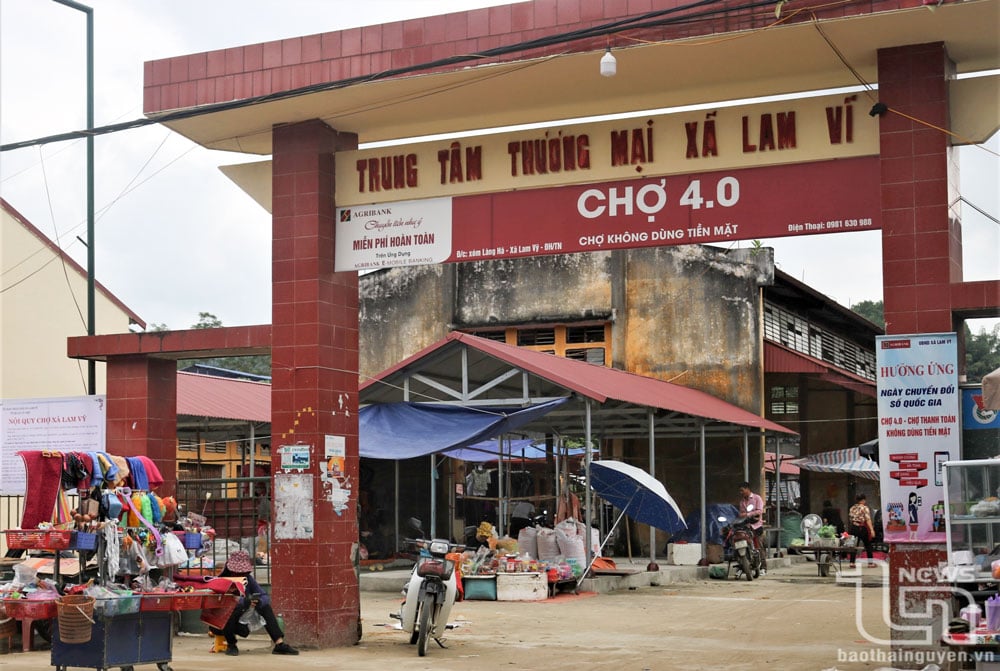 |
| Market 4.0 Lam Vi commune (Dinh Hoa). |
The 4.0 industrial revolution is taking place strongly, information and communication technology has become a key factor promoting socio -economic development. However, in Thai Nguyen province, the digital gap between rural and urban areas is still a new barrier in sustainable poverty reduction. Narrowing this gap requires synchronous investment in infrastructure, human resources and appropriate support policies.
New barriers from the digital divide
In recent years, Thai Nguyen province has been known as one of the localities with strong industrial development speed and great investment attraction in the country. In particular, in digital transformation, Thai Nguyen continues to be one of the leading localities.
| To date, the province has 4,454 mobile information transmission stations, with more than 1.4 million mobile phone subscribers, reaching 106 subscribers/100 people. In the first months of 2025 alone, there will be 700 new transmission stations. Accordingly, 100% of hamlets have fiber optic services to access fixed broadband internet. The rate of users with the ability to access fixed broadband at speeds above 01 Gb/s, reached 100%; more than 278,000 households registered for fiber optic internet subscriptions, reaching 82%. |
Broadband Internet has covered the entire province. Even in the most difficult areas of the province, where many ethnic minorities live in the districts of Dinh Hoa, Vo Nhai, Phu Luong. Telephone signals and internet are stable, but in real life there is still a big barrier called the digital divide. That is the reason why there are still people who are "left behind" because they do not have the skills to access digital utilities that are becoming more and more popular.
Mr. Ma Dinh Chung, Head of Coc Moc Hamlet, Linh Thong Commune (Dinh Hoa) : Currently, there are still many people in the locality who are not proficient in using smartphones. People only use them to listen, call, and text and do not know how to effectively exploit other utilities, such as not knowing how to register for online public services. Also in Dinh Hoa district, many people in hamlets: Tam Hop, Van La 1, Van La 2... Lam Vi commune are not proficient in using bank accounts.
At the “cashless” 4.0 market-commune trade center, Ms. Hac Thi Thanh said: In buying and selling, we are always fair with each other in cash for convenience. We are not used to paying by account.
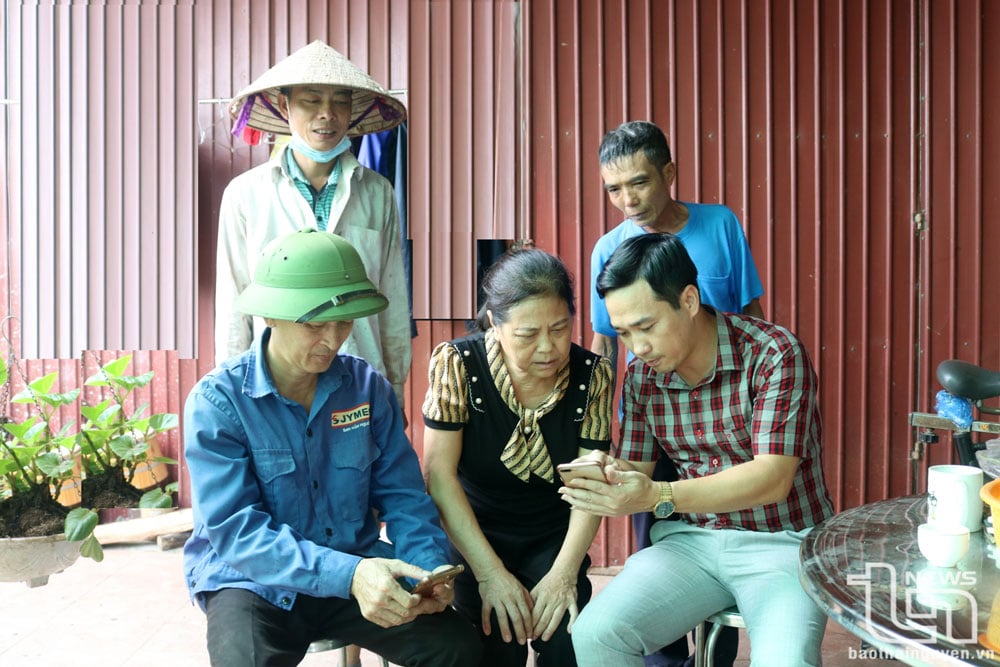 |
| Officials of Hung Son town (Dai Tu) shared with people about the skills of using some applications on smartphones with internet connection. |
E-commerce is opening up great opportunities for people. But many people are still struggling with the old way of doing things. When going online, they mainly look for entertainment, not paying attention to learning about science and technology, production and business experience. Ms. Hoang Thi Minh, Dong Thang hamlet, Binh Long commune (Vo Nhai) shared: I heard that selling tea online is more profitable, but I don't know how to use Facebook, Zalo, and the phone I use is a push-button phone.
In recent years, Thai Nguyen province has made efforts to implement many programs to narrow the digital gap. Typical examples include the program "Bringing Internet to the Village", cooperating with VNPT and Viettel to provide 4G coverage in remote areas; installing free wifi at commune People's Committee headquarters and cultural houses. At the commune level, there is a community digital technology team that is always ready to support people in installing banking applications, e-wallets, and using online public services. Thousands of poor students have been given electronic devices under the program "Wave and Computer for Children".
However, according to Mr. Duong Van Phong, Secretary of the Mong Party Cell in Dong Tam hamlet, Dong Dat commune (Phu Luong): Many programs are very good, but people are afraid to use technology. Partly because of the language barrier, partly because they do not understand what technology is for... Even in the center of Thai Nguyen city, there are still people who are not interested in technology. They consider technology to be for the young.
To close the digital gap, Thai Nguyen province is moving towards more comprehensive solutions. Specifically, it is promoting the popularization of digital skills and organizing "AI for the masses". One of the new directions is to support farmers in digital transformation in production. Households are consulted and connected to e-commerce platforms such as Postmart and Voso; trained in livestream sales skills, and attaching QR codes to trace the origin of products.
This not only helps increase income but also motivates people to learn and get acquainted with the digital environment. It is noted that in recent years, Thai Nguyen province has donated thousands of computers and phones with internet connection to the poor. But more important than the equipment is helping poor households, near-poor households, newly escaped poverty households, and people living in difficult areas to improve their technology application skills and create real motivation for people to participate in digital transformation.
Golden opportunity in sustainable poverty reduction
For Thai Nguyen people, the phrase “digital transformation” is no longer strange, but has become a daily story. Up to now, the provincial authorities have updated information of more than 10,000 poor households and more than 9,500 near-poor households on management software to serve the management work, implement policies and synchronize the database of C06 of the Ministry of Public Security.
Especially in the agricultural sector, farmers in the province's tea regions are gradually turning tea into a billion-dollar crop. One of the key points is that many farmers have quickly seized the opportunity and applied technology to production and business. Thereby, the value of products has been increased, farmers' income has increased, contributing to the successful implementation of the National Target Program on Sustainable Poverty Reduction.
Mr. Dang Van Huy, Director of the Department of Agriculture and Environment: Digital transformation not only opens up opportunities to improve productivity and product quality, but also helps farmers access larger markets, reducing dependence on traditional consumption methods.
Without waiting, many groups and individuals have learned the skills to use technology, proactively invested in equipment and created for themselves golden opportunities in production and business. A typical example is Ms. Nguyen Thi Hoang, Chairwoman of the Board of Directors, Director of the Saemaul Phu Nam 1 Agricultural, Commercial and Service Cooperative, Phu Do Commune (Phu Luong).
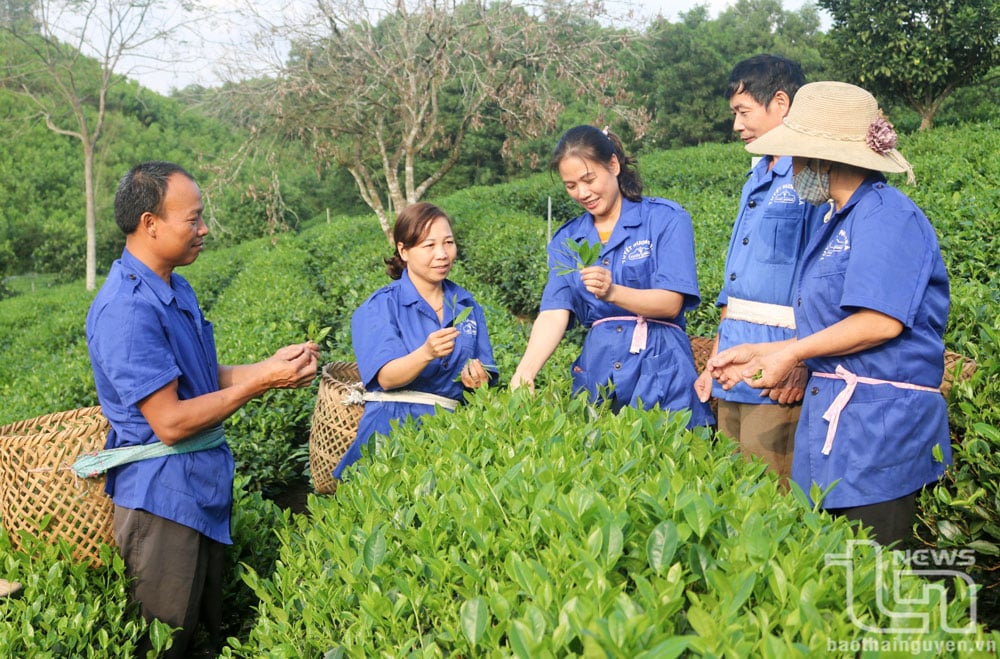 |
| To reassure consumers, tea farmers in the province share images of tea production and processing via cyberspace. |
Ms. Hoang was excited: Digital transformation has brought more economic benefits to the cooperative. Through livestreaming the production, care, harvesting, and processing processes, customers have more confidence in the cooperative's products. Thanks to that, Phu Nam 1's tea products have increased by about 100,000 VND/kg compared to before.
Regarding digitalization, Ms. Dao Thanh Hao, Director of Hao Dat Tea Cooperative, Tan Cuong Commune (Thai Nguyen City), said: Many stages are digitalized by the Cooperative. For example, checking attendance for workers by fingerprint; managing workers through a camera system. Most of the Cooperative's products are sold via the internet.
Ms. Dinh Thi Thuy, Khe Mo 1 hamlet, Khe Mo commune (Dong Hy): Thanks to mastering technology and knowing how to use e-commerce platforms, for more than 3 years now I have expanded the market to provinces across the country. On average, I publish more than 1.6 tons of tea per year. Customers order online and pay online.
Effective digital transformation has helped farmers in Thai Nguyen province change their production mindset, improve the quality of agricultural products, expand consumption markets and increase the value of goods. However, for digital transformation to truly become a "golden opportunity" for the agricultural sector, it is necessary to have stronger and more synchronous participation from all levels and functional sectors, along with the support of businesses. In particular, the key factor is the proactive spirit and awareness of farmers in accessing new technologies and improving their skills in applying technology to production and business. That is the sustainable foundation for farmers to reach new successes in the digital age.
(To be continued)
Source: https://baothainguyen.vn/xa-hoi/202506/cong-nghe-so-don-bay-moi-cho-giam-ngheo-ben-vung-ky-1-thach-thuc-tu-thuc-tien-8b00623/








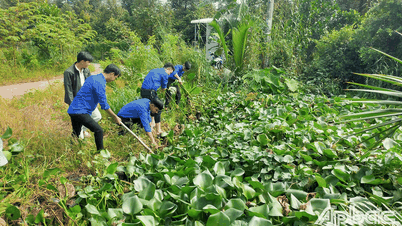

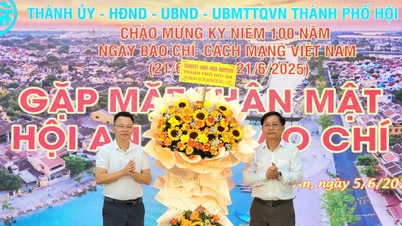

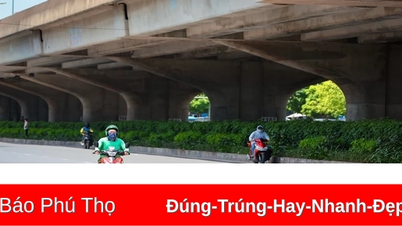



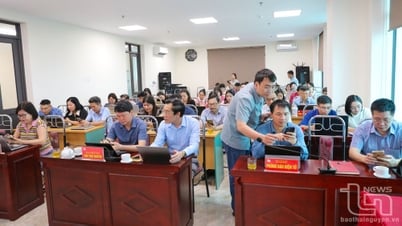
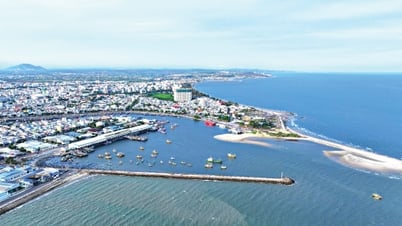






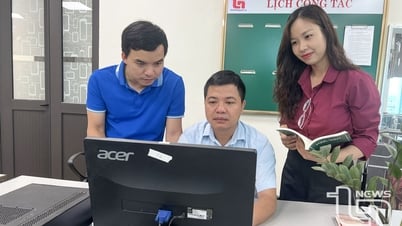
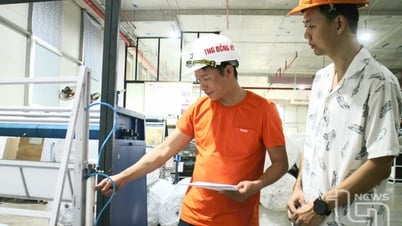









































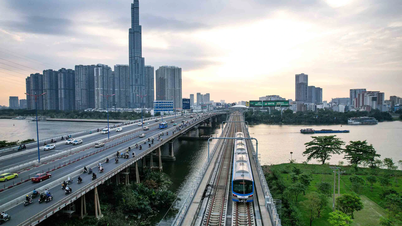














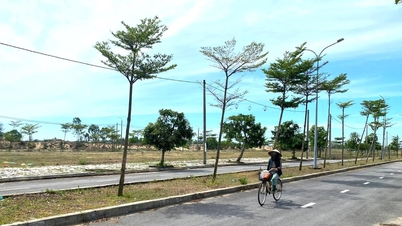










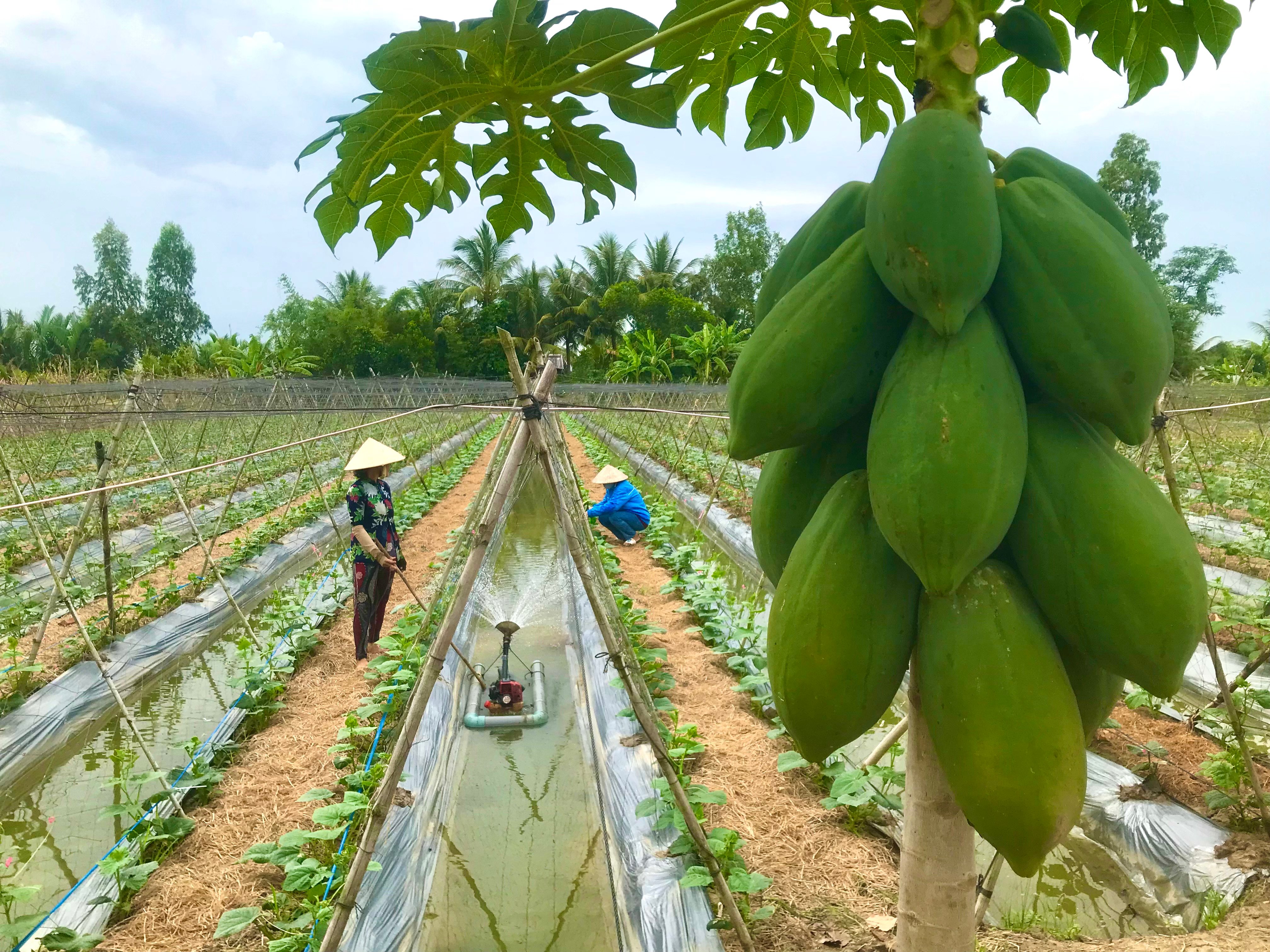



Comment (0)